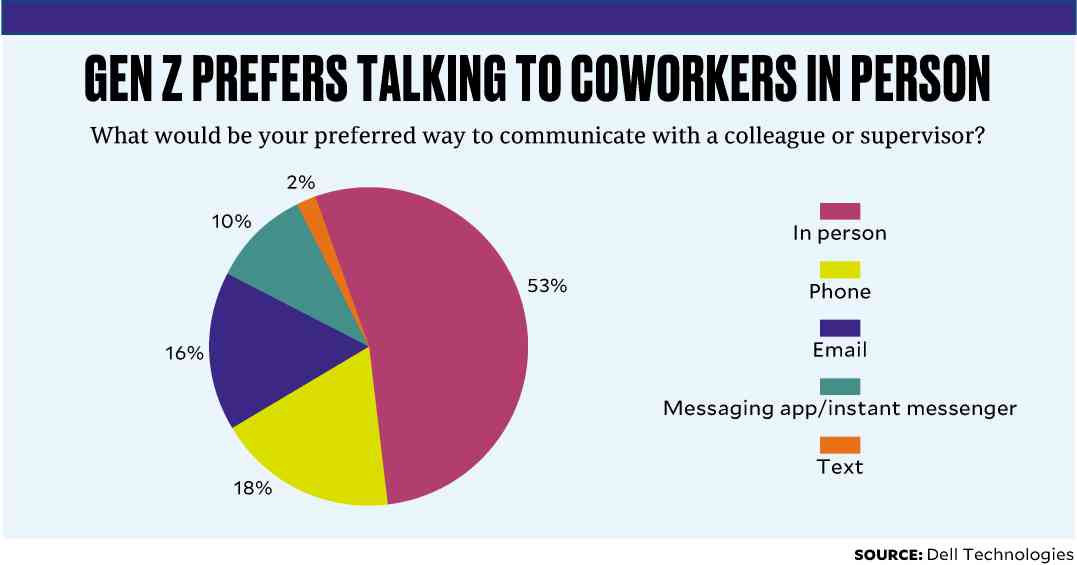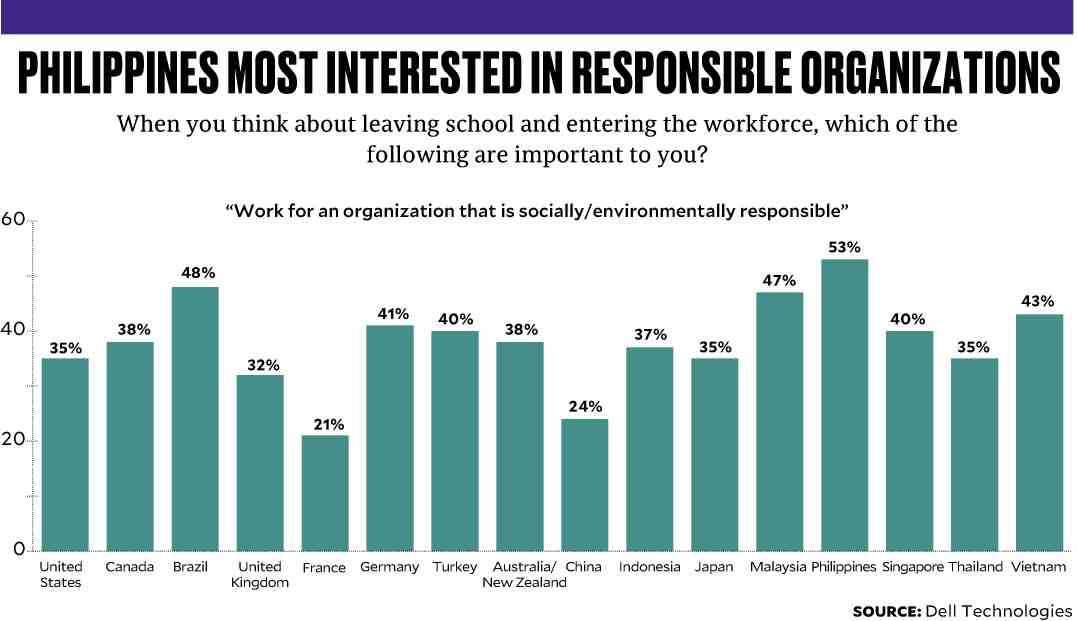Attracting the Filipino Gen Z
Aside from being heavily tech-oriented, Filipino Gen Zers—those born in 1996 and later—are looking to work not just for money, but for companies that are socially and environmentally responsible, and can provide them with opportunities to experience new things in their careers, says a recent study commissioned by information technology company Dell Technologies.
The “Gen Z: The Future Has Arrived” study compiled insights from over 12,000 high school and college students in 17 countries, over 4,000 of whom came from Southeast Asia (the Philippines, Indonesia, Vietnam, Thailand, Singapore and Malaysia). Locally, 730 Filipino students participated in the study.
Dell says almost 70 percent of Filipino Gen Zers, who have just joined or are about to become part of the country’s workforce, are very comfortable with tech skills—higher than the regional average of 62 percent, and global average of 52 percent. Such skills include mobile software application development and online learning, said Ronnie Latinazo, Dell EMC Philippines country general manager, at the study’s launch at Dell EMC Realize 2018, the company’s annual networking event for its customers and partners.
Given such statistics, it is no wonder that almost 90 percent of those surveyed say they wanted to work in an environment that has the latest cutting-edge technology—again, higher than the global average. Almost 100 percent also say the technology offered by an employer will be a factor in their eventual pick among job offers.
“This survey shows that Filipino youth are ready to be part of businesses’ digital transformation journey,” said Latinazo.
However, just because a company offers the latest high-tech work doesn’t mean Gen Z will automatically want to work in such a place, the study states. Equally important to this generation is that they are employed by a company that is socially and environmentally responsible (53 percent), and will give them refreshed skill sets and new experiences on the job (67 percent).
In short, Filipino Gen Zers aren’t just looking to work for money, the study states. Eighty-four percent also believe in the power of tech and automation to create a more equitable work environment by preventing bias and discrimination, while 60 percent want jobs that will allow them to use tech to help others or the environment.
Filipino members of this generation, therefore, see tech as partners rather than replacements at work (94 percent), the study further states. They are also keen on interpersonal communication and collaboration in the workplace, with almost 80 percent expecting to learn on the job from coworkers. Being digital natives, social media is a valuable professional tool for Gen Zers (91 percent); however, they also prefer to meet face-to-face with colleagues (53 percent) rather than just send each other messages (10 percent) or talk on the phone (18 percent).
“Today’s young professionals grew up in a collaborative educational environment, and they are bringing those same expectations to the workplace,” says Pang Yee Beng, Dell EMC senior vice president for commercial business in South Asia and Korea. “Though face-to-face communication isn’t always possible in today’s modern workplace, immersive technologies are enabling all types of workers to collaborate in both the physical and virtual worlds.”
Such attitude could address a potential problem in today’s multigenerational workplaces: the issue of senior professionals feeling outpaced by their younger colleagues. The study states that with up to five generations coexisting in today’s workplaces, companies must help their employees find common ground while pushing for a digital-first culture.
The good news is that 86 percent of Filipino Gen Zers say they are willing to mentor older coworkers who may not be as comfortable with today’s new tech.
“When it comes to welcoming Generation Z to the workplace, organizations need to rise to the challenge of creating a digital-first environment—from the hiring process, to onboarding, to the daily work experience,” says Pang. “Understanding this generation’s skills can open up new opportunities for businesses—and especially if those skills can be successfully democratized across the workforce, narrowing the digital divide amongst employees and strengthening technological capabilities overall.”


